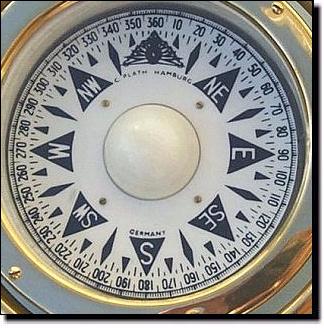|
evident |
|
evidence |
|
respond |
|
stir |
| intellect n. 1) the ability to use the power of reason Example: ★ Gates is a man noted more for his intellect than his charm. 2) a person of great intellectual ability Example: ★ Maria Gomez, historian, socialist and intellect, has died at the age of eighty-nine. |
| fool …
into… deceive somebody into doing something Examples: ★ Tim was fooled into believing that he'd won the lottery. ★ It was not right for Jean to fool Robert into believing that she was in love with him. |
| invisible a. that can not be seen Examples: ★ Invisible marks on the bank note make it almost impossible to fake. ★ The Stealth fighter is an aircraft designed to be invisible to radar. invisibility n. Example: ★ His novel focused on the social invisibility of black people. |
| up to as a maximum number of amount Examples: ★ This language lab can hold up to about 40 people. ★ Up to two hundred people died in the air crash. |
| methodically ad. in a very ordered, careful way Examples: ★ Joan methodically put the things into her suitcase. ★ Could you arrange the files methodically so that it will be convenient when you need them? |
| come over to make a short informal visit Examples: ★ Whenever in trouble she would come over to us for help. ★ I'll come over to see you on my next day off. |
| come upon to meet, find, or discover esp. by chance Examples: ★ Believe it or not, John came upon his wife to be in a flight to China. ★ I came upon this cool cap in a small store in Paris.. |
| in no
way not at all Examples: ★ Theory can in no way be separated from practice. ★ Alcohol will in no way ease your miseries. |
| curiosity n. the desire to know or learn Examples: ★ It is important to develop the natural curiosity of each child. ★ I'm burning with curiosity -- you must tell me who's won! |
| convince v. to make someone completely certain about something Examples: ★ The waste disposal industry is finding it difficult to convince the public that its operations are safe. ★ The defendant managed to convince the jury of his innocence. |
| insight n. (the ability to have) a clear, deep understanding of a complicated problem or situation Examples: ★ He was a brilliant actor who brought deep psychological insight to many of his roles. ★ Professor Becker offered some interesting insights into the human society. |
| genius n. 1) great and rare power of thought, skill, or imagination Example: ★ He has a spark of genius that distinguishes him from the other actors. 2) a person of very great ability or very high intelligence Example: ★ Chaplin was not just a genius; he was among the most influential figures in film history. |
| apparently ad. 1) according to what seems to be true Examples: ★ Well, apparently she's had enough of her major and she's heading off to finance. ★ The window had apparently been forced open. 2) actually Examples: ★ I thought they were married but apparently not. ★ She looks about 12 but apparently she's 14. |
| condense v. to reduce in size Examples: ★ You should rewrite your thesis and condense 120 pages into 50. ★ All the suggestions put forward will be condensed into a single plan of action. |
| essence n. the central or most important quality of a thing Examples: ★ The essence of his argument was that education should continue throughout life. ★ A sharp rise in income tax is the essence of the new policy. in essence by nature; essentially Example: ★ He is in essence a fighter, and enjoys competition. |
| relate
to to understand and accept Examples: ★ Many parents find it hard to relate to their children when they are teenagers. ★ She cannot relate to the idea of working with computers. |
| come up
with to think of (a plan, reply, etc.); produce Examples: ★ Scientists will have to come up with new methods of increasing the world's food supply. ★ Many net service companies haven't come up with an effective way to bring profits. |
| peak 1) v. to reach the highest point or level Examples: ★ Official figures show that unemployment peaked in November and then fell slowly over the next two months. ★ Temperatures have peaked at over 40 ℃. 2) n. the highest point or level Examples: ★ Holiday flights reach a peak before the Spring Festival. ★ At the peak of her career she startled us all with a decision to retire. |
| fundamental a. forming the base, from which everything else originates; more important than anything else Examples: ★ Some understanding of grammar is fundamental to learning a language. ★ We need to make fundamental changes to the way in which we treat our environment. |
|
spark |
|
persistence |
|
push for |
|
ultimate |
|
create |
|
detail |
|
|
Euclid |
|
|
Compass |
 |
|
|
| Course 3 > Unit 2 > Passage A |
|
|||||||||||||
|
|
|
©Experiencing English 2002
|